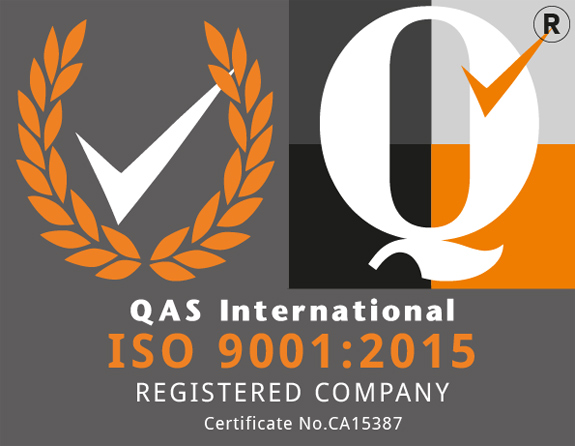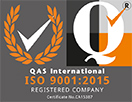
For many owners of commercial garages and vehicle repair businesses, the struggle to keep the cold, hard garage floor clean and free of oil, grease, and other hazards is a reality. But while many of these issues are part of the job, more garages are using PVC interlocking garage floor tiles or matting to tackle these issues. While these options are a versatile and popular addition, thanks to their durability and easy installation, they can also quickly accumulate dirt, grease, and grime. In this article, we'll tell you how to clean interlocking garage floor tiles to get your garage looking as clean as possible.
Knowing how to clean your interlocking garage floor tiles will make a big difference to the cleanliness and safety of your garage. But before starting the cleaning process, you should get all the necessary supplies beforehand. Doing this will ensure you have everything you need to tackle the job efficiently, effectively, and safely. Here are some tips on getting the right cleaning supplies for the job.
While interlocking floor tiles are easy to maintain, you’ll need a few things to keep them looking great and free from dirt. A quality long-handled broom or even a vacuum cleaner are essential tools to get started. After that, a good multi-purpose liquid floor cleaner, a sturdy sponge squeeze mop, a bucket, and a hand sponge are all essential items – even a quality power washer will be helpful. An oil and grease remover or specialist cleaning solution for any stubborn stains is also handy.
The most popular interlocking floor tiles for garages are our anti-slip Suremat circle stud tiles. Cleaning them with the right products is vital as they’re made from high-quality, soft-feel PVC. Because they’re hard-wearing, a multi-purpose liquid floor cleaner is a good choice. But choose one that won’t damage the tiles or leave them with a streaky finish or residue when it dries. Beyond this, investing in good-quality items will give you a long-lasting arsenal of cleaning gear.
Though it should go without saying, safety is paramount when cleaning anything with cleaners and chemicals in a commercial space. Keep the area well-ventilated and always have the right equipment for the job. But also ensure that any appropriate personal protective equipment (PPE) like gloves and safety goggles are available. Identifying potential hazards and preventing workplace accidents is crucial to keeping your garage safe.
Before starting the cleaning process, you should prepare your garage floor. This preparation will help you get the best results and avoid any damage to your interlocking tiles. Here are some steps to prepare your garage floor for cleaning.
The first step in preparing your garage floor is removing loose debris and dirt. Use your broom to sweep up any loose dirt, dust, leaves, or debris on the floor. Use your vacuum cleaner to remove any remaining dust and dirt particles, especially in the corners and edges of the garage. If there are any large debris items, remove them manually to avoid damaging your tiles during cleaning.
If there are any stains or spills on your garage floor tiles, you must get them dealt with before you start cleaning. Identify the type of stain or spill and use an appropriate cleaning solution to remove it. For instance, oil stains may require a degreaser, while rust stains may require a specialist rust remover. Follow the manufacturer's instructions carefully when using any cleaning products.
Now that you've prepared your garage floor tiles for cleaning, it's time to start. This step is crucial for restoring the tiles to their original condition, removing any build-up of dirt and grime, and giving your garage a cleaner finish. Here are some tips on effectively cleaning your interlocking garage floor tiles.
Depending on the size of your garage, you can use different methods to clean your tiles. The choice will depend on the dirt or stains on your tiles and your preference. But while a power washer can be more effective for tough stains and dirt, it may damage the tiles if misused and leave your garage floor wetter than you’d like. A standard squeeze mop is gentler but will allow the floor to dry quicker. However, it may require more effort and time.
A squeeze mop is more useful if you have a smaller garage or use interlocking tiles in several areas, so mix your floor cleaner with warm water in the bucket to get started.
Use your sponge mop to apply the solution to the tiles and scrub them gently, cleaning right into the corners and edges of the garage. Remember to change the water frequently to get the best results. Be sure to mop up any residue that’s left over before rinsing the tiles with clean water.
Apply your specialist oil and grease remover or cleaning solution to any stubborn stains that won't come off with regular cleaning. Let it sit for a few minutes before scrubbing gently and rinsing the tiles with clean water. If the stain persists, consider getting professional help or replacing the affected tiles.
After cleaning your interlocking garage floor tiles, the next step is to dry them. While this is crucial to prevent mould and ensure the tiles look their best, it’s also essential to preventing accidents or slips. Here are some tips on how to dry and finish your garage floor tiles properly.
A dry floor in any workplace is essential for health and safety, especially in a busy commercial garage. After cleaning, dry garage floor tiles will prevent staff and customer slips and falls while maintaining their durability. Any residual dampness and moisture from cleaning can also lead to mould growth, damaging the tiles and shortening their lifespan.
To dry your garage floor tiles, use your squeeze mop to remove excess water and a dry cloth to get into tight nooks and crannies. Then, allow the tiles to air dry for several hours before walking or driving on them. If you need to speed up the drying process, use a fan or a dehumidifier to remove any remaining moisture.
Maintaining a regular cleaning schedule for your interlocking garage floor tiles is the best way to keep them clean and safe. Using the cleaning and drying tips above, you’ll keep your tiles looking their best for longer.
And because the PVC tiles interlock, they can be connected together to fit large, small or even challenging spaces. This flexibility makes them a versatile, tough, and durable temporary or permanent flooring option for your commercial or vehicle repair garage.
For more information on PVC interlocking floor tiles or matting, contact MatsDirect UK today. You can send us a message, call us on 0161 797 6785, or email us at sales@matsdirect.co.uk, and we’ll give you any help and advice you need, as well as give you a quote for the best-suited floor tiles for your garage.

MatsDirect UK Ltd are fully accredited for the ISO 9001:2015 (Quality Management System) standard which demonstrates our ability to consistently provide our products and services that meet our customer's applicable statutory and regulatory requirements.
ISO 9001:2015 also aims to enhance customer satisfaction through the effective application of the system including processes for improvement.

Website designed by Highpoint Media
